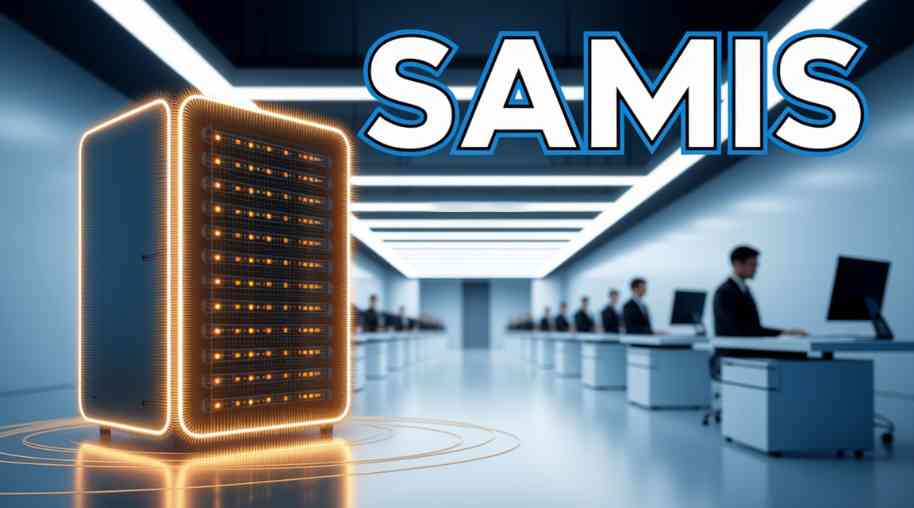SAMIS Full Form-Strategic Asset Management Information System
by Shashi Gaherwar
0 1004
Strategic Asset Management Information System: A Guide to Efficient Asset Management
Introduction
Effective asset management is critical for organizations to optimize resources, minimize costs, and improve operational efficiency. The Strategic Asset Management Information System (SAMIS) is a powerful tool designed to streamline asset management, enabling organizations to plan, monitor, and maintain their assets effectively. By leveraging technology and data-driven insights, SAMIS enhances decision-making and ensures the sustainability of physical and financial assets.

What is a Strategic Asset Management Information System (SAMIS)?
A Strategic Asset Management Information System (SAMIS) is a digital platform that helps organizations manage their assets throughout their lifecycle. It enables businesses and government entities to track, maintain, and optimize their infrastructure investments efficiently. SAMIS integrates data, analytics, and automation to improve long-term asset performance and cost-effectiveness.
Objectives of SAMIS
1. Optimizing Asset Utilization: Ensures efficient use of assets to maximize their lifecycle and reduce unnecessary expenditures.
2. Data-Driven Decision Making: Provides real-time data and analytics for strategic planning and risk assessment.
3. Maintenance and Risk Management: Helps schedule preventive maintenance, reducing the chances of asset failure.
4. Cost Efficiency: Reduces maintenance and replacement costs through proactive asset management.
5. Regulatory Compliance: Assists organizations in meeting legal and industry compliance requirements.
Key Features of SAMIS
1. Centralized Asset Database
• Stores all asset-related information in a centralized system, ensuring easy access and management.
2. Lifecycle Management
• Tracks the entire lifecycle of assets, from procurement to decommissioning.
3. Predictive Analytics
• Uses data analytics and AI to predict potential asset failures and optimize maintenance schedules.
4. Real-Time Monitoring
• Enables real-time tracking of asset conditions, usage patterns, and performance metrics.
5. Compliance Management
• Ensures adherence to safety, environmental, and financial regulations by maintaining proper documentation and reports.
Benefits of Implementing SAMIS
• Improved Decision-Making: Provides data-driven insights to optimize asset investments.
• Reduced Maintenance Costs: Preventive maintenance reduces breakdowns and costly repairs.
• Extended Asset Life: Regular monitoring and scheduled maintenance prolong asset usability.
• Enhanced Productivity: Streamlined operations lead to increased efficiency and reduced downtime.
• Better Financial Planning: Helps in budgeting and forecasting asset-related expenses.
Implementation of SAMIS in Different Sectors
1. Infrastructure and Transportation
• Governments and municipalities use SAMIS to manage roads, bridges, and public transportation systems efficiently.
2. Energy and Utilities
• Power plants, water treatment facilities, and renewable energy sources use SAMIS for predictive maintenance and efficiency improvements.
3. Manufacturing and Industrial Sector
• Tracks machinery performance, reduces operational downtime, and ensures optimal resource utilization.
4. Real Estate and Facility Management
• Property managers use SAMIS to maintain buildings, HVAC systems, and utilities effectively.
Challenges in Implementing SAMIS
1. High Initial Investment: The cost of setting up and integrating SAMIS can be significant.
2. Data Accuracy and Integration: Requires proper data collection and integration with existing systems.
3. Training and Adaptation: Employees need training to effectively use the system.
4. Cybersecurity Risks: As a digital platform, SAMIS must be secured against data breaches and cyber threats.
Future Trends in SAMIS
• Artificial Intelligence and Machine Learning: AI-powered asset management will enhance predictive maintenance and automation.
• IoT Integration: Sensors and IoT devices will provide real-time asset condition monitoring.
• Cloud-Based Solutions: Cloud-hosted SAMIS platforms will improve accessibility and scalability.
• Blockchain for Security: Secure asset transactions and record-keeping will be enhanced through blockchain technology.
The Strategic Asset Management Information System (SAMIS) is an essential tool for organizations looking to optimize asset performance, reduce costs, and improve operational efficiency. By integrating data-driven decision-making, predictive analytics, and automation, SAMIS ensures that organizations can manage their assets effectively while complying with regulations and improving long-term sustainability.
As technology continues to advance, SAMIS will evolve to offer smarter, more efficient asset management solutions, ensuring better financial planning and infrastructure resilience for industries worldwide.

Share:








Comments
Waiting for your comments